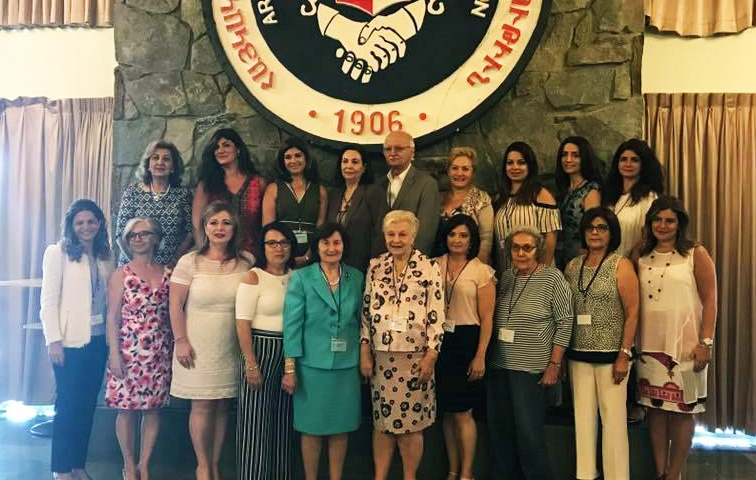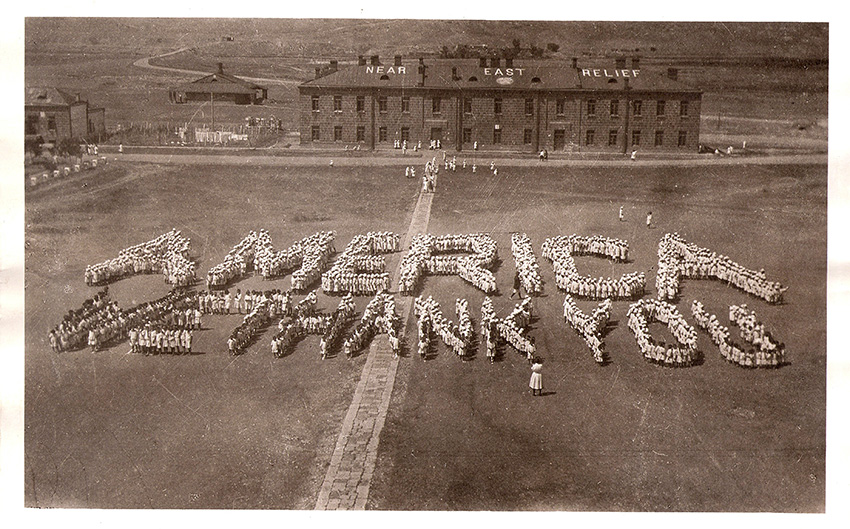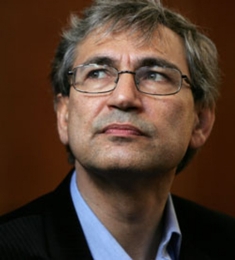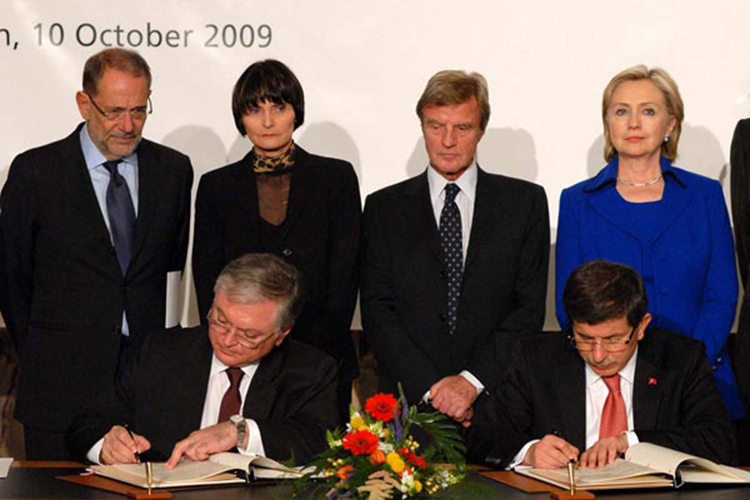By Sona Zeitlian
AGBU Hye Geen organized a most original debate about a cultural question which has divided different age-groups. The perennial question is whether “amote” is meant to shame by seeking the preservation of traditional values, or whether as a right, it must yield to the trends of our times. After all, we now live “in a culture that teaches us to promote and advertize ourselves and to master the skills required for success.”
The challenge of “amote” had intrigued a large group gathered at the newly renovated AGBU Vatche and Tamar Manoukian Center in Pasadena, on Saturday August 19, 2017.
After the welcoming remarks of AGBU Hye Geen Committee member Silva Kardjian, well-known actress and playwright Lory Tatoulian presented an entertaining song and dance sketch. Performing in the theater since she was 8-years old, Lory is recognized for her contributions to the Armenian-American theater and was awarded a grant from the National Endowment of the Arts. Touching upon the challenge of “amote,” she addressed light-hearted instances of “amote” to the attendees of different ages and warned them about the consequences of gossiping, which travels with the speed of lightning. She also advised them to be cautious when “picking an odar” as a companion.
After the pleasant interlude, the guest speakers took up the challenge of “amote.” Armenia-born Armenui (Amy) Ashvanian, a distinguished prosecutor also teaching at Glendale University College of Law, was recently selected to participate in the U.S. State Department’s Overseas Prosecution Department Assistance and Training Program, and traveled to Armenia for the introduction of reforms in the criminal justice system.
Presenting “The Benefits of Amote,” the speaker referred to the responsibility of preserving Armenian traditions and stated that “amote” is a component of culture, which connects people, transmits enduring moral values and reinforces our national identity. She also warned that excessive use or abuse of “amote” causes undue confusion, humiliation and resentment. However, in times of rapid social change and uncertainty, “amote” is a useful tool of moral guidance for parents, provided it assures equal treatment of sons and daughters. Then she dwelt on discriminatory practices prevalent in authoritarian societies, where “amote” arouses feelings of distress. In this sense, Armenian patriarchal households should beware of “amote” for fear of rendering girls too submissive and robbing them of their self-confidence, self-respect and honest self-confrontation. Finally, she cautioned that “amote” should adapt to living conditions and national needs. She also warned that in oppressive atmospheres, “amote” is internalized and domestic violence prevails to the detriment of the social fabric.
The first speaker’s thoughtful presentation was followed by another with a different perspective. Armenia-born Angela Barseghian, an attorney in private practice took the stand that “ “Amote” Restricts Personal Achievements.”
She began with a bold statement about the validity of “amote” as a means of preserving traditions and enriching Armenian life. Instead, she denounced it as a means of enslaving people and controling women. She was critical of church teachings and overlooked the role of the Church as the only institution that had unified and sustained Armenians throughout much of their turbulent history. She was also critical of the post Soviet Armenian state, accusing it of protecting special interests, instead of empowering the people and promoting their civil rights. Bluntly renouncing conformity to the tenets of religious and secular national institutions, as well as the traditional strictures of “amote,” she concluded that instead of being guided by shared values, free speech should be encouraged, personal needs should take precedence, and that we should be motivated by conscious personal choices.
Angela Barseghian’s failure to acknowledge the function of national institutions and a whole system of human values necessary for insuring stability and for building character raised many questions and energized a lengthy exchange of opinions.
AGBU Hye Geen’s trendsetting event created great interest. The challenge of “amote” was taken up by an appreciative audience and the debate continued…










